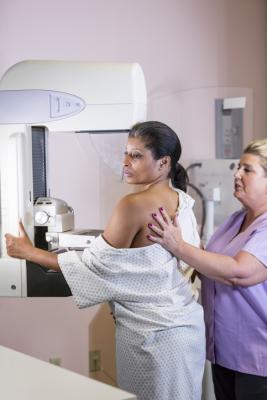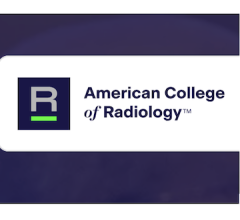
Getty Images
May 15, 2023 — RSNA updated its Statement on Screening for Breast Cancer, recognizing new recommendations from the American College of Radiology (ACR) and the United States Preventive Services Task Force (USPSTF). RSNA continues to support the ACR and Society of Breast Imaging recommendation for annual mammography screening beginning at age 40 in order to save the most lives from breast cancer.
In updated breast cancer screening guidelines, ACR lowered its recommended age for women at increased risk to be assessed for earlier screening from age 30 to age 25.
“The ACR recommends that the patient at average risk for breast cancer gets screened with mammography starting at age 40 and yearly thereafter with no upward limit, as age should not be a factor of when a patient stops screening instead of their overall health and other co-morbidities,” said Stamatia V. Destounis, MD, chair of the ACR Breast Commission and a member of the RSNA Public Information Advisors Network. “The ACR guidelines speak specifically for the high-risk patient because of family history of breast cancer, and or dense breast tissue as these are groups that the USPSTF fails to recommend any supplemental screening.”
In a draft statement released this week, the USPSTF recommends biennial screening mammography for women ages 40 to 74 years. The revised recommendation concludes that “the current evidence is insufficient to assess the balance of benefits and harms of screening mammography in women age 75 years or older.” The USPSTF is accepting public comment on the statement through June 6.
“The new Breast Cancer Screening Guidelines from USPSTF do not go far enough in their recommendation for breast cancer screening,” said Dr. Destounis, Managing Partner at Elizabeth Wende Breast Care, LLC. “Black women are 42% more likely to die of a breast cancer in comparison to white women and the USPSTF guidelines could exacerbate the disparities by allowing cancers in these high-risk women another year to advance.”
The goal of breast cancer screening is to find cancer at a small size and early stage before it is large enough to cause symptoms or has spread elsewhere in the body. By finding cancers early, we reduce morbidity and mortality from this disease. Since 1990, the breast cancer death rate in the U.S., which had been unchanged for the preceding 50 years, has decreased by 43%, primarily due to screening mammography, according to 2015 National Cancer Institute Surveillance, Epidemiology, and End Results (SEER) data.
For more information: www.rsna.org
Related Breast Density Content:
Task Force Issues New Draft Recommendation Statement on Screening for Breast Cancer
VIDEO: Research and Advancements in Breast Imaging Technology
VIDEO: FDA Update on the US National Density Reporting Standard - A Discussion on the Final Rule
One on One … with Wendie Berg, MD, PhD, FACR, FSBI
Creating Patient Equity: A Breast Density Legislative Update
AI Provides Accurate Breast Density Classification
VIDEO: The Impact of Breast Density Technology and Legislation
VIDEO: Personalized Breast Screening and Breast Density
VIDEO: Breast Cancer Awareness - Highlights of the NCoBC 2016 Conference
Fake News: Having Dense Breast Tissue is No Big Deal
The Manic World of Social Media and Breast Cancer: Gratitude and Grief
Related Breast Imaging Content:
Single vs. Multiple Architectural Distortion on Digital Breast Tomosynthesis
Today's Mammography Advancements
Digital Breast Tomosynthesis Spot Compression Clarifies Ambiguous Findings
AI DBT Impact on Mammography Post-breast Therapy
ImageCare Centers Unveils PINK Better Mammo Service Featuring Profound AI
Radiologist Fatigue, Experience Affect Breast Imaging Call Backs
Fewer Breast Cancer Cases Between Screening Rounds with 3-D Mammography
Study Finds Racial Disparities in Access to New Mammography Technology


 February 05, 2026
February 05, 2026 









